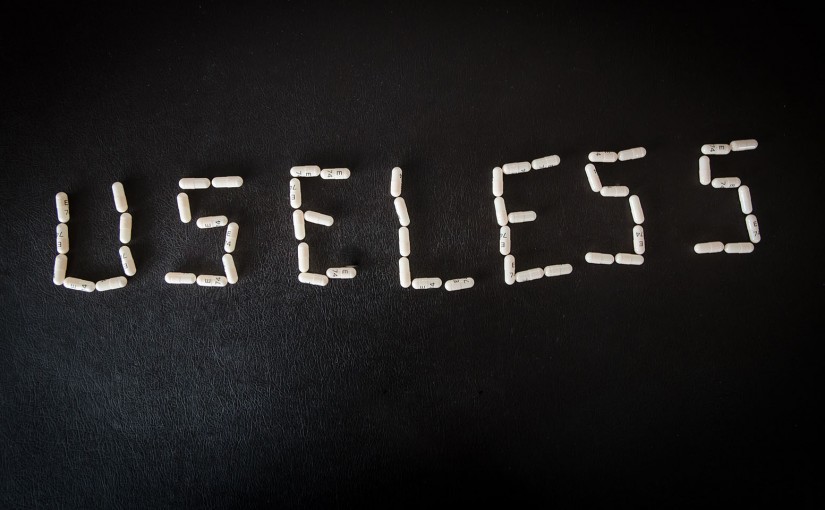From Angle of Reflection:
“Ben wanted to see Michel’s organic vineyards and chemical neighbors again. It wasn’t far. He couldn’t look at these two plots of land without believing the absence of intrusive chemicals just had to be better for everyone, for the entire ecosystem of the vineyard, including the people and animals who worked there. So why was he introducing foreign substances into his own body to alter the natural balance? Anti-depressant medications were unnatural and they worked in subtle and insidious ways: reinforcing harmful behavior by making you comfortable with it, reinforcing passivity by making it seem acceptable behavior. Depression is difficult, but rounding off the edges doesn’t help. It just makes it worse. He had made his decision.”
Ben decided to change because he didn’t like the way he felt, or didn’t feel, and because he had come to believe in the need for man to live with, and work from what nature gives.
Now I’ve begun to look into the research on anti-depressant medication – something I should have done long ago – and what I’m reading is making me angry. Whether I would have had this reaction while still taking the meds is an open question, but I feel healthier just being able to feel the anger.
The first stop was the first of a series of NY Times opinion articles by a writer named Diana Spechler called “Breaking Up With My Meds.”
http://opinionator.blogs.nytimes.com/2015/02/12/breaking-up-with-my-meds/?_r=0
Her condition would seem to be more severe than mine, but her description of some of the side-effects of the medication was similar.
Here’s the paragraph that hit home:
My thinking is slowed, my creativity stymied. When I work, I feel as though boulders are strapped to my brain. I’m constantly thirsty. I’ve lost my taste for exercise, a mood-enhancer I’ve long relied on, and become more sedentary than I’ve ever been. Perhaps most disruptive of all, depression still lies, dead weight, on top of me — a few hours here, a few hours there — and medicated, I feel less motivation to wriggle out from under it.
Embedded in the article was a link to a piece from 2011 in The New York Review of Books titled: “The Epidemic of Mental Illness: Why?” By Marcia Angell, Senior Lecturer in Social Medicine at Harvard Medical School and former Editor in Chief of The New England Journal of Medicine. She discusses three books on psychiatry and the use of anti-depressant drugs
http://www.nybooks.com/articles/archives/2011/jun/23/epidemic-mental-illness-why/
Here are the three books she discusses:
The Emperor’s New Drugs: Exploding the Antidepressant Myth by Irving Kirsch
Anatomy of an Epidemic: Magic Bullets, Psychiatric Drugs, and the Astonishing Rise of Mental Illness in America by Robert Whitaker
Unhinged: The Trouble with Psychiatry—A Doctor’s Revelations About a Profession in Crisis by Daniel Carlat
I don’t intend to summarize or criticize any of these works, read Angell’s article, but as always with this blog I want to explore my personal reactions to what is significant in my world and, specifically, how it affects creativity.
I feel so strongly that trashing the meds has enabled me to reach an emotional awareness that has, in turn, allowed me to write with a greater precision, clarity, and depth than ever before. That’s only my belief, but at this stage, it’s the only one that counts.
Kirsch has two major theses, both strongly supported by the data he presents. One: anti-depressant medications are no more effective than the placebos used to control clinical trials, and this fact is well known to the pharmaceutical companies, the FDA, and doctors who have taken the time to read the literature. It is easy to understand why nothing is done about it: the drug companies make a lot of money selling these meds, the FDA receives half its funding from the drug companies, and the doctors don’t have anything else to offer their patients.
Two: The marketing and prescribing of these meds is based on the theory that depression is caused by a chemical balance resulting in a deficiency of neurotransmitters in the brain. There is no evidence that this is true. None.
The meds are designed to increase the amount of neurotransmitters in the brain, thereby acting on a condition that is not proven to exist.
Here, from Angell’s work is the nut of the problem:
“…because certain antidepressants increase levels of the neurotransmitter serotonin in the brain, it was postulated that depression is caused by too little serotonin. (These antidepressants, like Prozac or Celexa, are called selective serotonin reuptake inhibitors (SSRIs) because they prevent the reabsorption of serotonin by the neurons that release it, so that more remains in the synapses to activate other neurons.) Thus, instead of developing a drug to treat an abnormality, an abnormality was postulated to fit a drug.
That was a great leap in logic, as all three authors point out. It was entirely possible that drugs that affected neurotransmitter levels could relieve symptoms even if neurotransmitters had nothing to do with the illness in the first place (and even possible that they relieved symptoms through some other mode of action entirely). As Carlat puts it, “By this same logic one could argue that the cause of all pain conditions is a deficiency of opiates, since narcotic pain medications activate opiate receptors in the brain.” Or similarly, one could argue that fevers are caused by too little aspirin.
That’s interesting and amusing, but here’s the real problem for me: once a person is put on a psychiatric medication, which, in one manner or another, throws a wrench into the usual mechanics of a neuronal pathway, his or her brain begins to function…abnormally.
So here’s the deal: these drugs (SSRIs) increase the level of serotonin in the brain, but there is absolutely no scientific evidence that my depression or anyone else’s resulted from a deficiency of serotonin. In my case, the result was an enormous dulling of emotions, loss of mental acuity and creativity, and an increase in passivity that kept me from trying to overcome the effects of depression. I believe it worsened over time but can’t say for sure; it may be that changed circumstances finally forced me to recognize what was happening all along.
For me, the only way past this was to quit taking the meds. I feel very strongly that this has resulted in reversing these debilitating conditions and that has, in turn, freed me to write the insight and clarity I was seeking. We’ll see.
©2015 Ron Scherl

